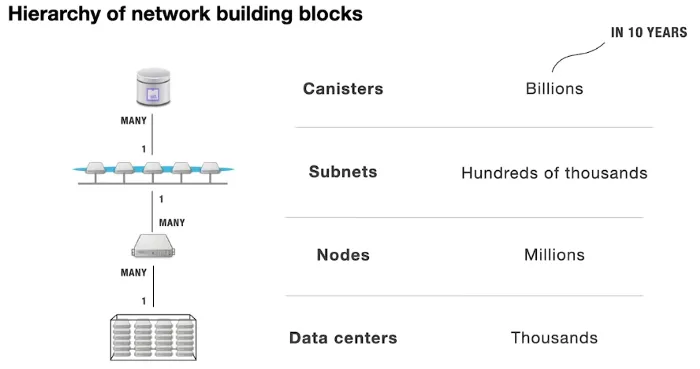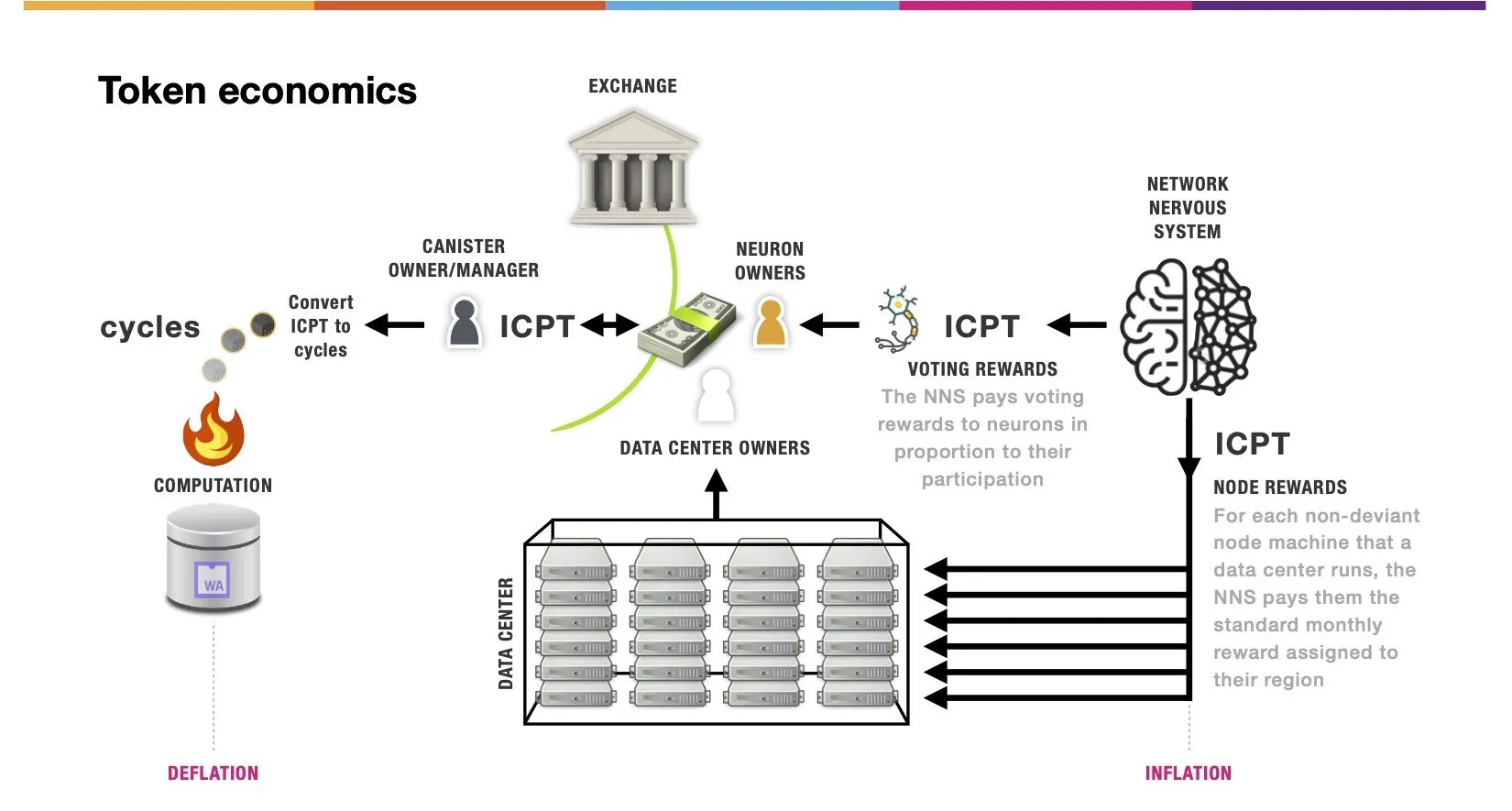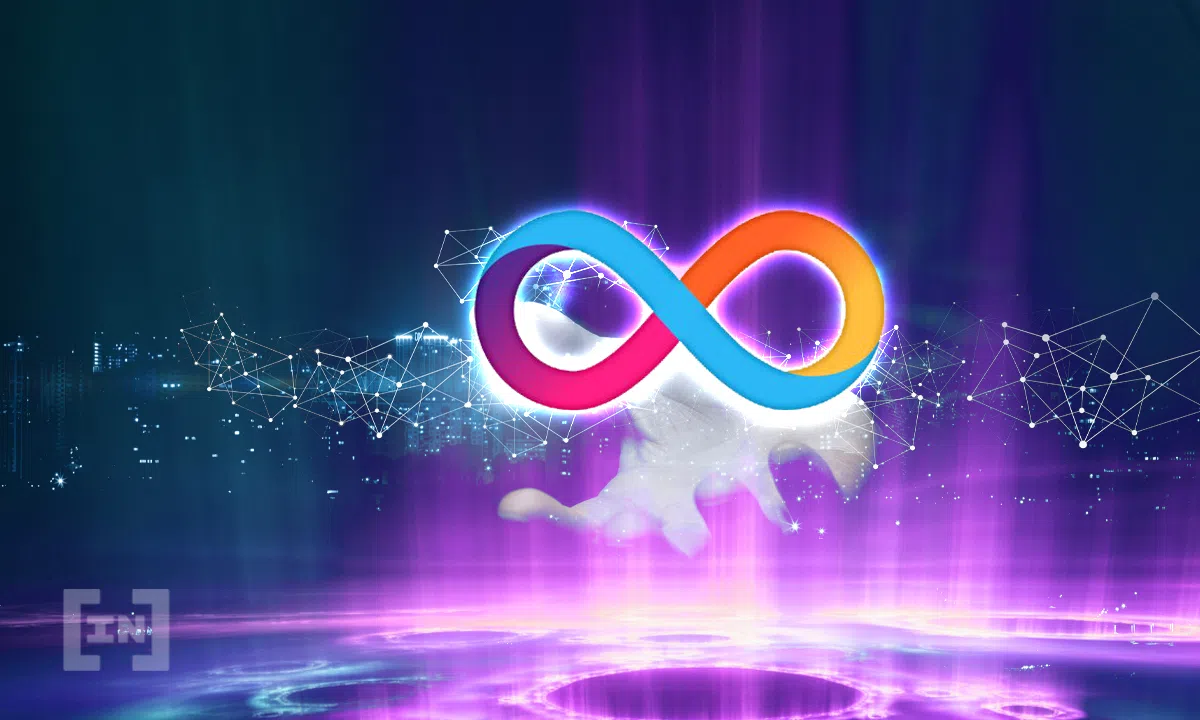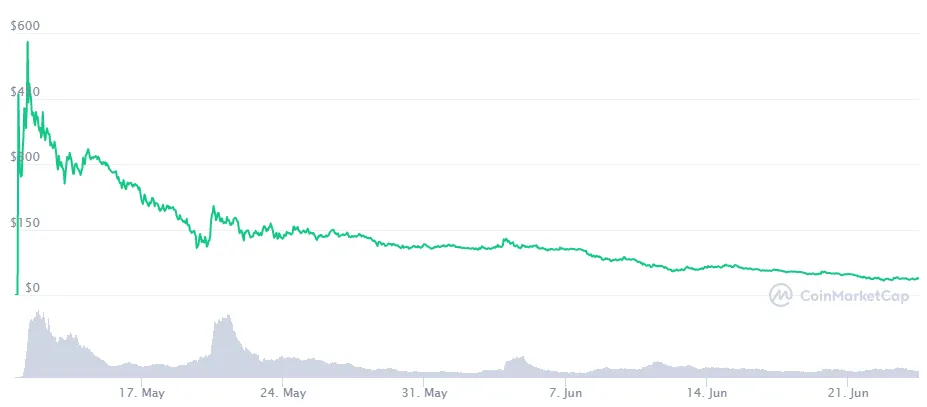Both cryptocurrencies and decentralized finance (DeFi) are lauded as necessary. However, both still operate on a centralized system — the Internet itself. Internet Computer Protocol (ICP) and its ICP coin aim to change that.
Like what you see? Join BeInCrypto Trading Community on Telegram with like-minded people: share your experience, discuss and read all the hottest news on Web3 and the Metaverse. Join us
This Guide Contains:
- Internet Computer Protocol (ICP) Explained
- Who Is Behind ICP coin?
- How Does ICP Work?
- What’s Special about the ICP Coin?
- Is It a Good Idea To Buy ICP Coin?
- Frequently Asked Questions
Internet Computer Protocol (ICP) Explained
ICP coin is the native cryptocurrency to the Internet Computer Protocol. Simply put, ICP is the first blockchain project of its kind to scale the Internet itself, instead of just at the app or data storage layer. This way, both individuals and businesses can deploy any kind of software/content on the Internet without relying on the mercy of monopolies such as Facebook, Google, Amazon, or Twitter.
As a scalable, open-source project, the protocol is not only interoperable with other blockchains, but all applications previously relying on a centralized infrastructure can run on-chain. Alongside Filecoin, ICP coin is the key ingredient for the making of Web 3.0. One that makes the Internet open again by relying on decentralized blockchains and smart contracts to reconstruct the Internet’s full-stack.
Consider how the MetaMask wallet works now — it binds DeFi protocols within a single interface. ICP goes deeper than that, allowing smart contracts to directly connect to other smart contracts and deliver web content to the end-user.
Who Is Behind ICP coin?
The ICP coin and protocol launched in 2016, under the supervision of the non-profit Dfinity Foundation, consisting of over 200 developers across offices in San Francisco, Zurich, Palo Alto, and Tokyo.
Who Owns the Most Bitcoin in 2022?
Altogether, they have impressive academic work under their belt, with almost 100,000 academic citations. After funding rounds during 2018, Dfinity managed to raise nearly $195 million for the development of the project.
Dominic Williams developed the Internet Computer Protocol and ICP Coin, portraying ICP as making a “new open internet” and reimagining the Internet “as a computer that hosts secure software with superpowers”.
Williams is a cryptographic scientist, foremost known as the inventor of Threshold Relay and Probabilistic Slot. The foundation’s investors largely venture capitalists, including Aspect Ventures, Amino Capital, Eterna Capital, Polychain Capital, and Andreessen Horowitz.
In 2020, Dfinity unveiled its first dApp at the annual Davos conference under the umbrella of the World Economic Forum. Dubbed LinkedUp, the app was a decentralized version of LinkedIn. Likewise, they later released CanCan, an open version of TikTok consisting of only 1000 lines of code and able to scale up with storage needs.
On May 7, 2021, the Internet Computer Protocol launched its first public mainnet. According to its roadmap, the ICP-powered open internet should overshadow the closed internet within 20 years.
How Does ICP Work?
While it is largely open-source, the Internet Computer’s code is licensed under the Apache License 2.0, with some components using Internet Computer Shared Community Source License and Internet Computer Community Source License.
The network has been programmed by an entirely new language developed by the Dfinity Foundation, called Motoko. However, ICP’s framework also supports RUST and C languages.
Like Cardano or soon-to-be Ethereum, the Internet Computer is based on the proof-of-stake (PoS) consensus but consists of four layers: identity, random beacon, blockchain, and notary.
Another key difference is that ICP uses canisters instead of smart contracts to auto-execute actions. Thanks to the four layers, these canisters provide practically infinite scalability.
More importantly, the novel Chain Key Technology makes ICP run at web speed — actions/queries are executed in milliseconds while its block rate speed should ramp up to 1,000 bps by the year’s end. In comparison, Ethereum’s June bps at 13.22.
Altogether, by combining the power of all the blockchain’s nodes, ICP coin generates a unified platform able to host any type of application at any scale. The end-users interact with the canisters without noticing the difference with the currently closed internet.
What’s Special about the ICP Coin?
 ICP structure: Dfinity
ICP structure: Dfinity
Previously known as DFN, the Internet Computer or ICP coin is directly tied to ICP’s Network Nervous System (NNS), as its utility coin. NNS is the governance protocol for managing the network, first unveiled in September 2020. It consists of four components:
- Data Centers – currently 48
- Nodes – currently 1,300
- Subnets – similar to Polkadot’s parachains
- Canisters – ultra-scalable smart contracts
As with other blockchains, users have to lock their ICP coin to participate in governance. Once locked in for a period of time, they become “Neurons” that allow stakeholders to vote, with the voting power being proportional to the number of locked ICP coins.
Moreover, each month, neurons yield voting rewards. Outside of governance, Computer coins are used to power dApps hosted on ICP’s blockchain. If a developer wants to deploy an app, they would have to convert Computer coins into “cycles” that run all the functions within the smart contract canisters.
 ICP token econimics: Dfinity
ICP token econimics: Dfinity
As you can see from the infographic, the Internet Computer tokenomics relies on both inflationary and deflationary forces, with its initial coin supply at 469,213,710. ICP coin current circulating supply is 128,985,798 ICP. Within a week of ICP’s mainnet launch, the Internet Computer coin achieved a massive market cap of $71.8 billion, soon to subside to $4.8 billion, with the computer coin itself priced at $37.58.
Is It a Good Idea To Buy ICP Coin?
Thus far, major crypto exchanges have already listed Internet Computer (ICP) coin: Coinbase, Binance, Huobi, and Gate.io.
Although Dfinity’s stated mission is to counter Big Tech’s monopolization and increasingly aggressive tyrannical behavior, it is troublesome that it unveiled its first dApps at the World Economic Forum, the same overarching body that pushes hyper-centralization and total surveillance.
However, ICP’s impressive academic backing cannot be overstated. Moreover, there is no other project like it, except for Filecoin, which decentralized data storage. The name of the coin itself is likely to hit the right spot as well — Internet Computer. While generic, the branding speaks to its highly demanded, ambitious goal to make the Internet open and fun again.

 ICP price: CoinMarketCap
ICP price: CoinMarketCap


